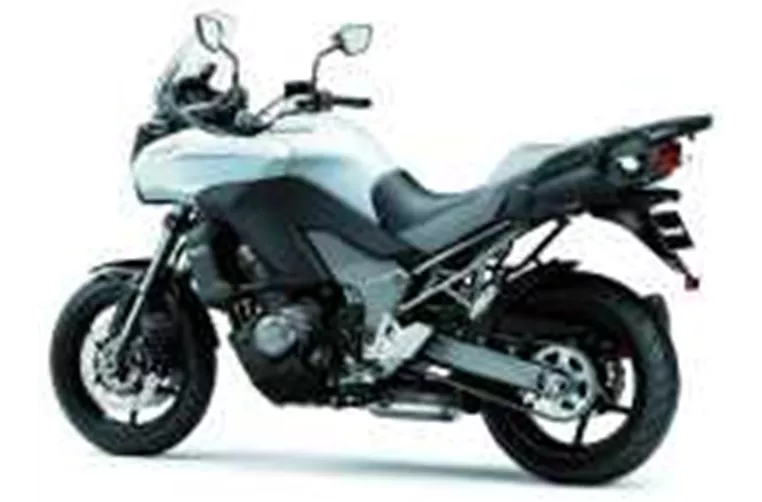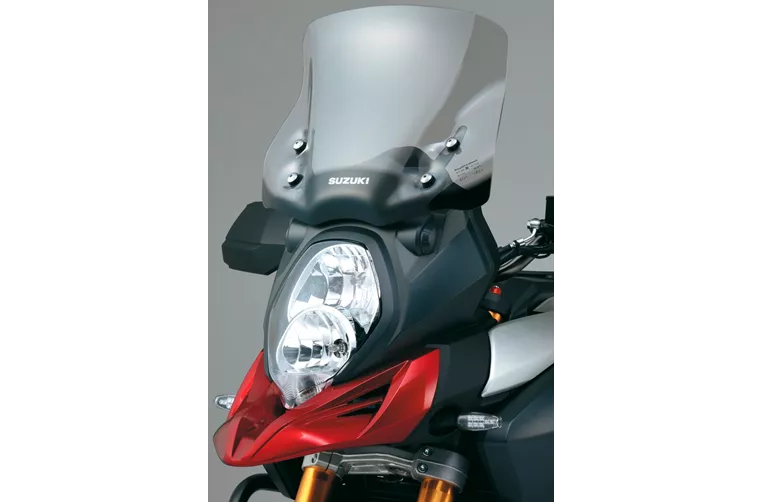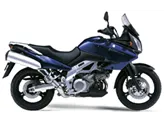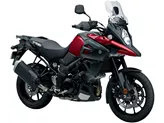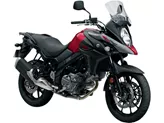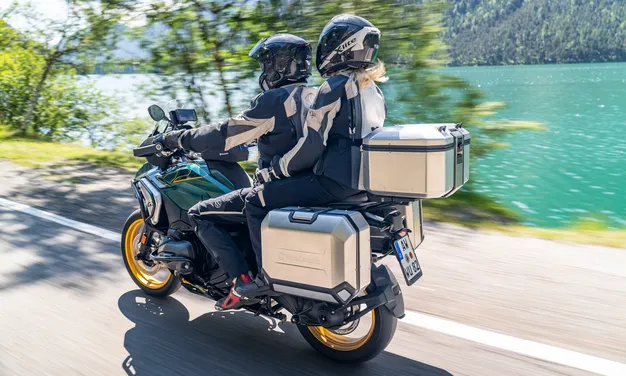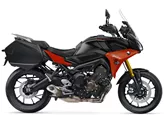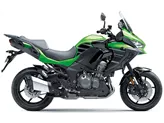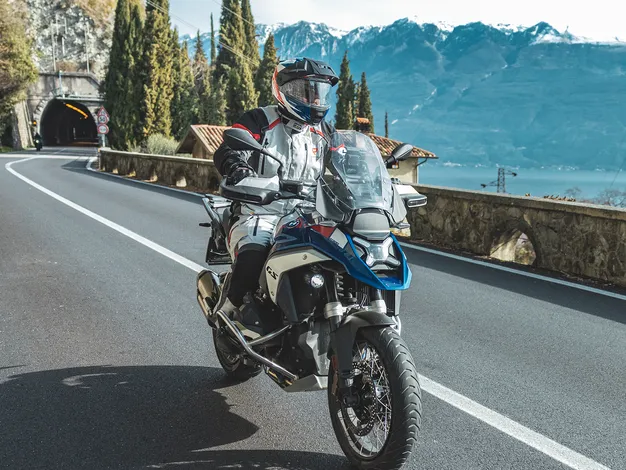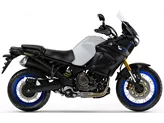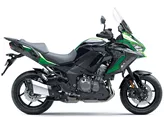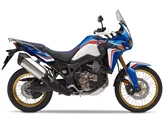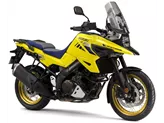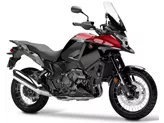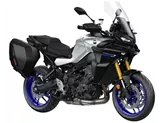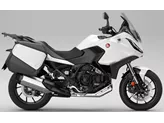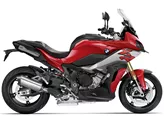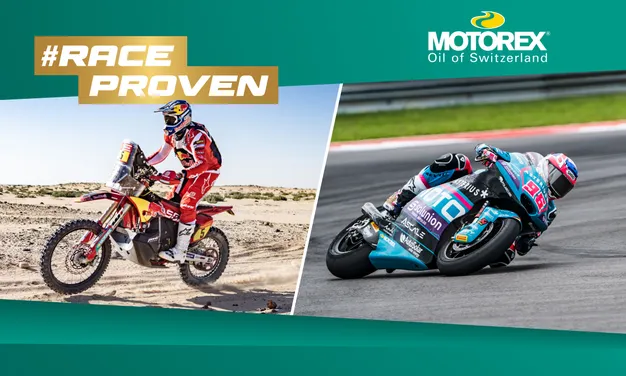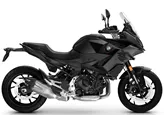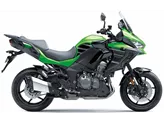Kawasaki Versys 1000 2012 vs. Suzuki V-Strom 1000 2016
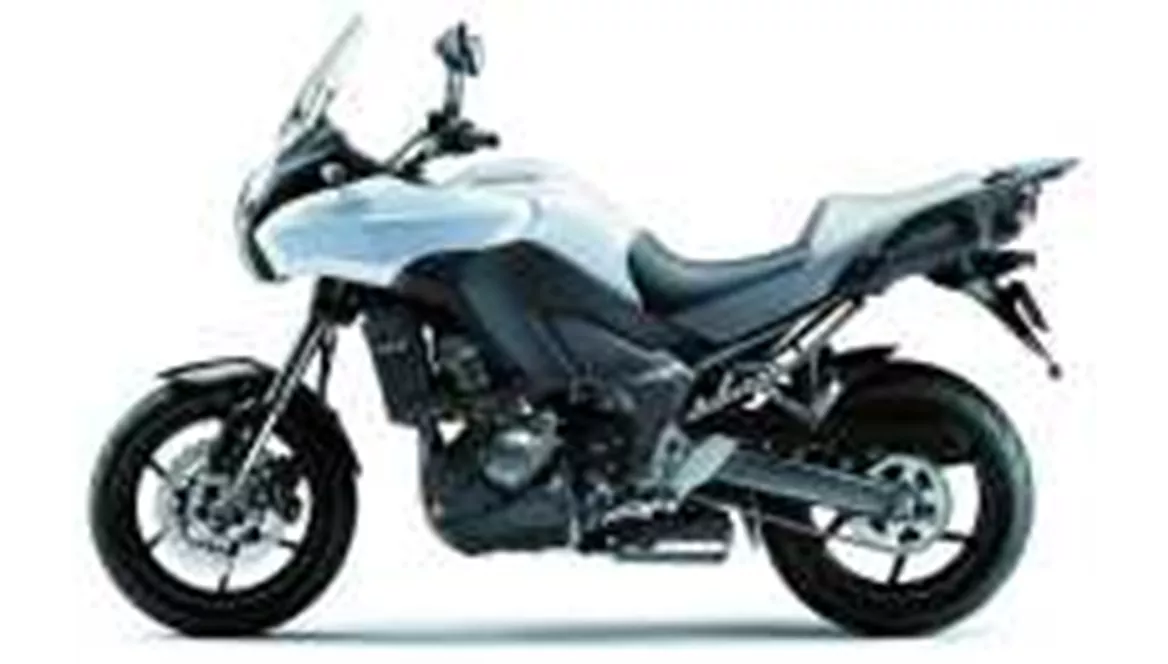
Kawasaki Versys 1000 2012

Suzuki V-Strom 1000 2016
Vue d’ensemble - Kawasaki Versys 1000 2012 vs Suzuki V-Strom 1000 2016
The Kawasaki Versys 1000 model year 2012 and the Suzuki V-Strom 1000 model year 2016 are both enduro motorcycles that offer a combination of sporty performance and comfortable touring capabilities.
In terms of engine specifications, the Kawasaki Versys 1000 2012 has a bore of 77 mm and a stroke of 56 mm, resulting in an engine displacement of 1043 ccm. It produces 118 HP of power and 102 Nm of torque. On the other hand, the Suzuki V-Strom 1000 2016 has a larger bore of 100 mm and stroke of 66 mm, resulting in a slightly higher displacement of 1037 ccm. It produces 100 HP of power and 103 Nm of torque. Both motorcycles feature a chain transmission system.
When it comes to suspension, both motorcycles are equipped with upside-down telescopic forks in the front. The chassis of both motorcycles is made of aluminum, providing a lightweight yet sturdy frame.
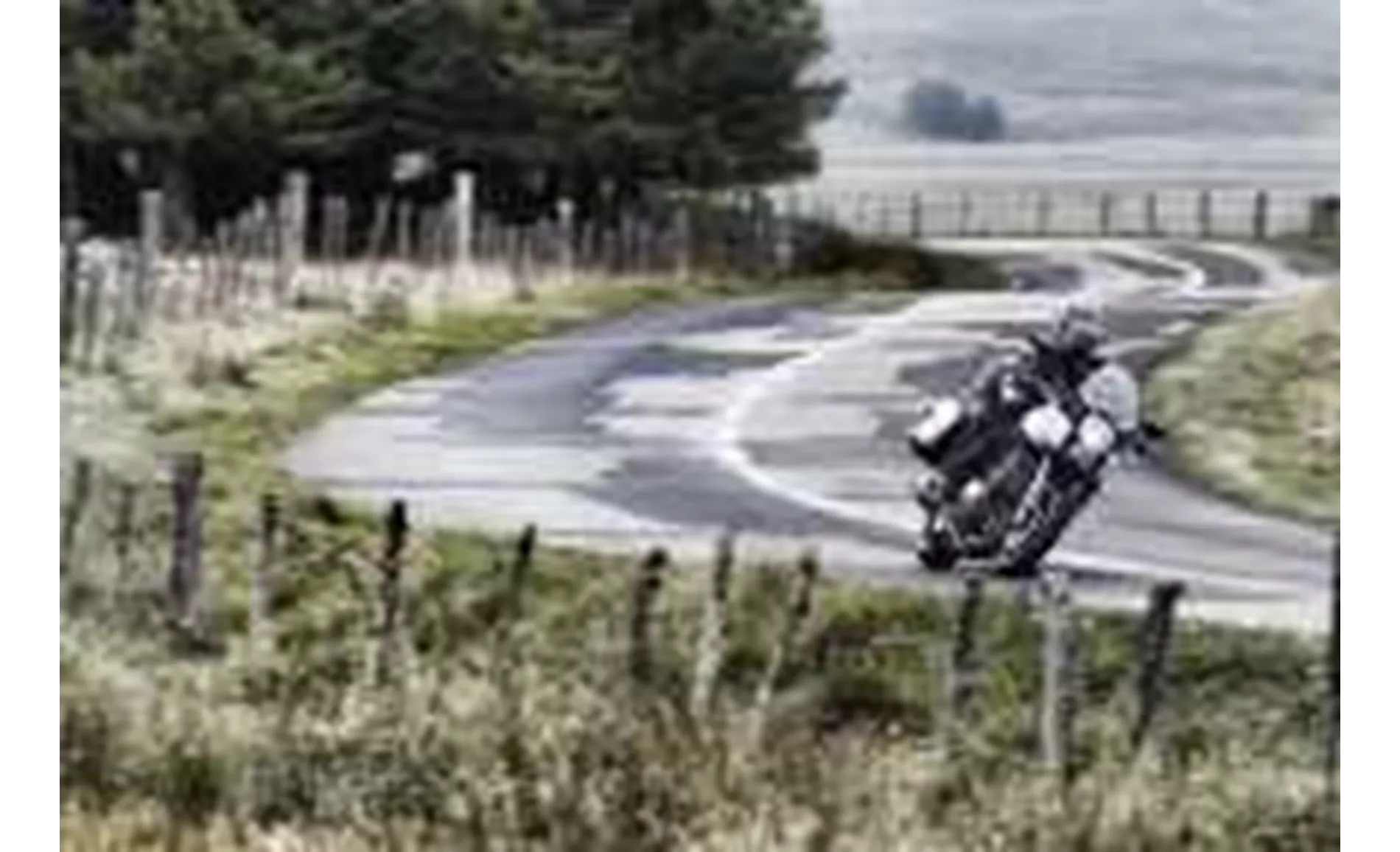
Kawasaki Versys 1000 2012
In terms of dimensions and weights, there are some differences between the two models. The Kawasaki Versys 1000 2012 has a front tire diameter of 17 inches and a rear tire width of 180 mm, while the Suzuki V-Strom 1000 2016 has a larger front tire diameter of 19 inches and a narrower rear tire width of 150 mm. The wheelbase of the Kawasaki Versys 1000 2012 is 1520 mm, while the Suzuki V-Strom 1000 2016 has a slightly longer wheelbase of 1555 mm. The kerb weight of the Kawasaki Versys 1000 2012, including ABS, is 239 kg, while the Suzuki V-Strom 1000 2016 weighs slightly less at 228 kg. Both motorcycles have a fuel tank capacity of around 20-21 liters.
Moving on to the strengths of each motorcycle, the Kawasaki Versys 1000 2012 is praised for its silky running powerplant, offering smooth and responsive acceleration. It also features a sporty yet comfortable chassis, providing a good balance between agility and stability. The wind protection is efficient, reducing fatigue during long rides, and the cushioned seat adds to the overall comfort.
On the other hand, the Suzuki V-Strom 1000 2016 is known for its powerful engine, delivering strong performance in various riding conditions. It also comes with traction control as standard, enhancing safety and stability. The brakes are highly regarded for their effectiveness, providing excellent stopping power. The chassis of the V-Strom 1000 is described as taut yet comfortable, offering a good balance between sporty handling and long-distance touring capabilities. Additionally, the motorcycle is praised for its complete instrumentation, providing riders with all the necessary information at a glance.

Suzuki V-Strom 1000 2016
However, both motorcycles have their weaknesses. The Kawasaki Versys 1000 2012 has been criticized for slight tipping in curves, which may take some time for riders to get used to. Additionally, the design of the motorcycle is subjective and may not appeal to everyone.
On the other hand, the Suzuki V-Strom 1000 2016 has been noted for creating turbulence on the rider's head due to the windshield design. Some riders have also mentioned that the engine runs out of breath in the upper rev range, limiting its performance in higher speed ranges. The aesthetics of the V-Strom 1000 have also been described as arbitrary, meaning that the design may not be universally liked.
In conclusion, both the Kawasaki Versys 1000 2012 and the Suzuki V-Strom 1000 2016 offer a combination of sporty performance and comfortable touring capabilities. The choice between the two will ultimately depend on individual preferences and priorities, such as engine power, handling characteristics, and design aesthetics.
Caractéristiques techniques Kawasaki Versys 1000 2012 par rapport à Suzuki V-Strom 1000 2016
Avantages et inconvénients en comparaison
Avantages et inconvénients en comparaison
Kawasaki Versys 1000 2012
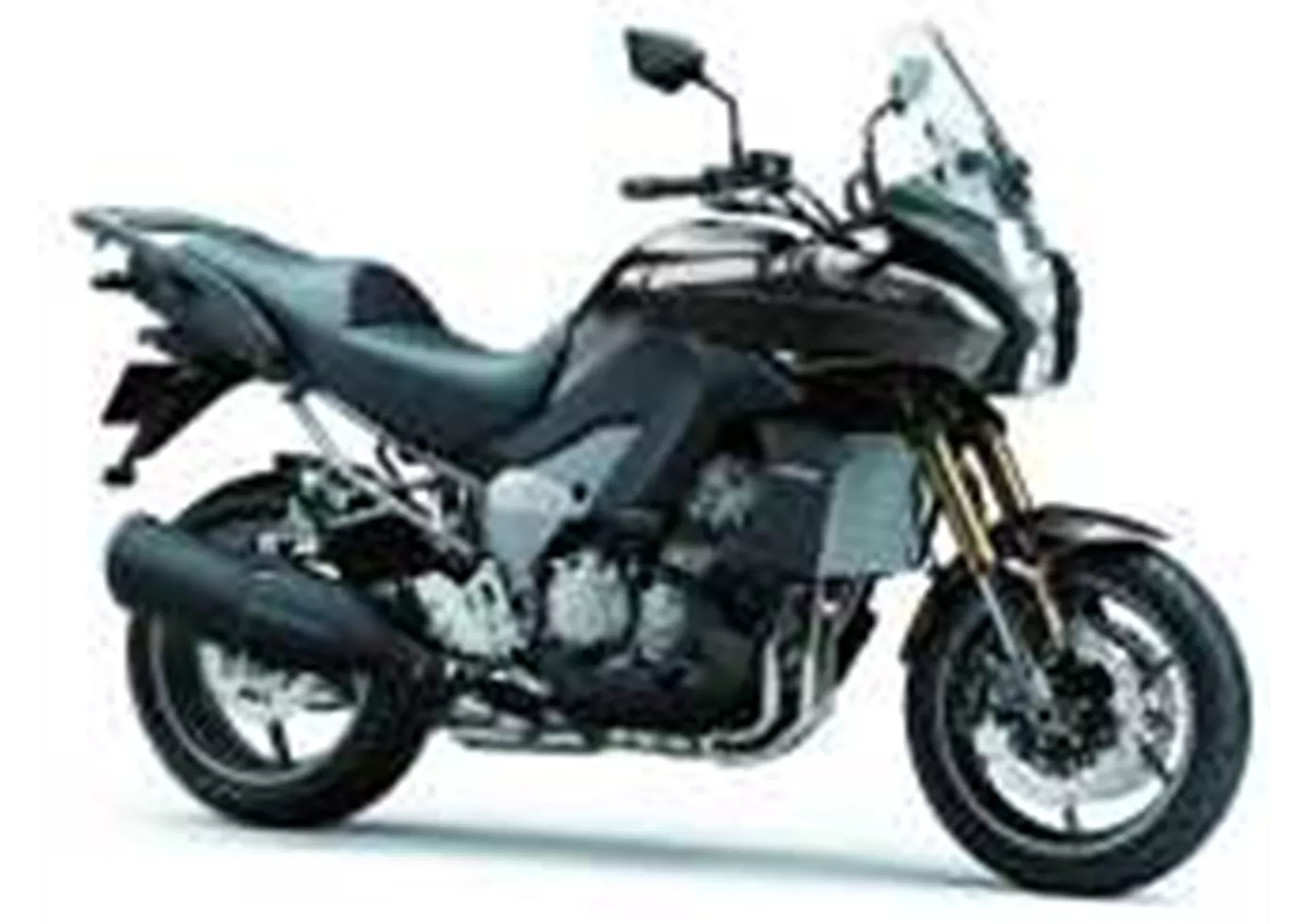
Avec aucun autre bigenduro, il n'est possible de rouler aussi fort au niveau des genoux et de se retrouver ainsi très loin sur la grille de départ. Ceux qui se sentent souvent agressés sur la route des vacances devraient riposter avec la Versys 1000. Ce qui prouve que bigenduro et quatre cylindres sont compatibles.
Suzuki V-Strom 1000 2016
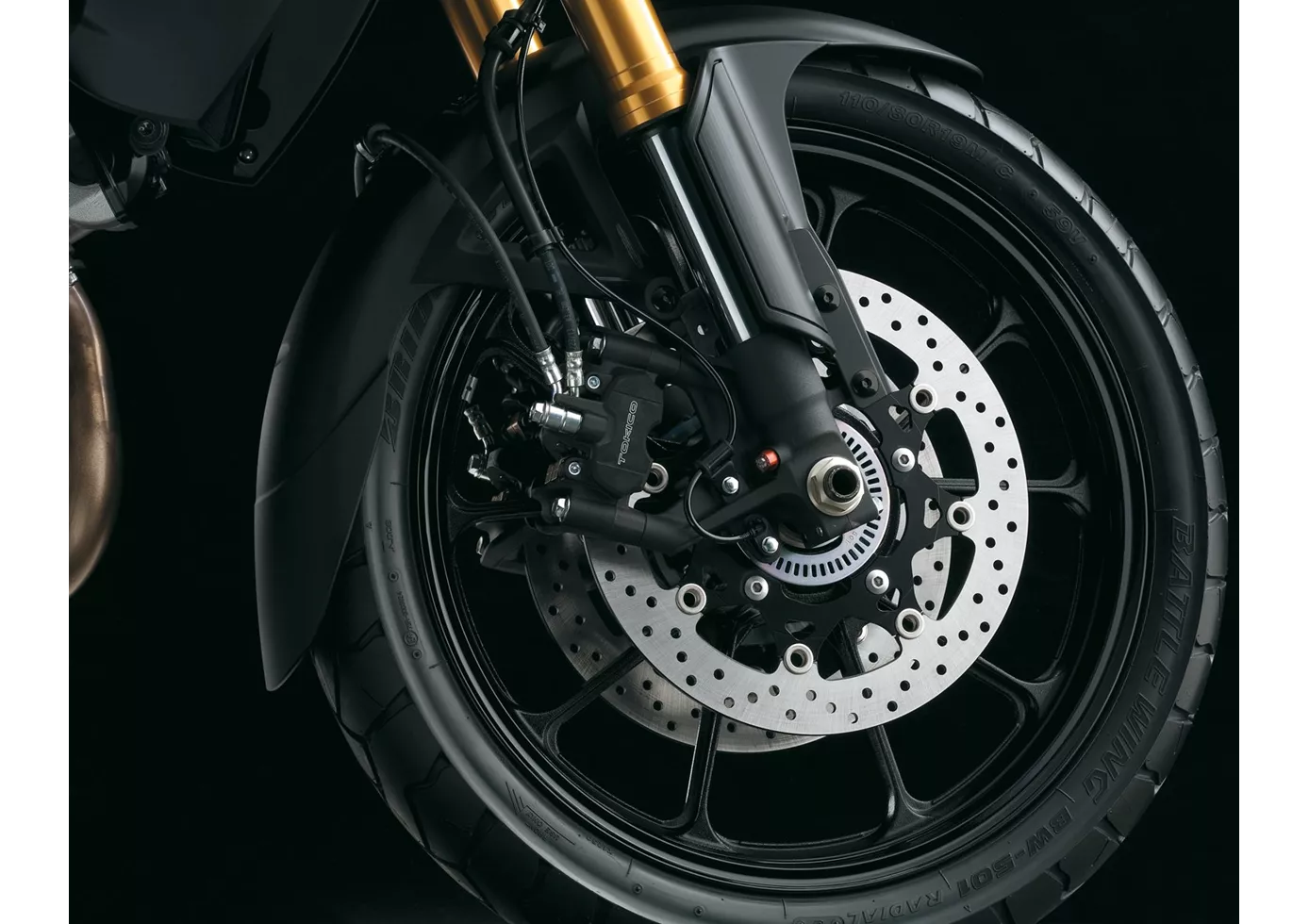
Dans le segment des grosses cylindrées, la Suzuki V-Strom 1000 occupe la position de l'offre avantageuse, sans pour autant devoir renoncer à quoi que ce soit - le contrôle de traction et l'ABS sont de série. D'excellents freins, un confort exceptionnel et un moteur bicylindre en V merveilleusement puissant sont des ingrédients qui devraient plaire à presque tout le monde. Le fait qu'elle ne joue pas dans la cour des grands avec ses 100 ch est compensé par le magnifique déploiement de puissance qui assure un climat détendu lors des longs voyages. Seule la protection contre le vent n'est pas optimale avec le pare-brise d'origine, il faudrait alors investir dans un pare-brise abordable et un peu plus grand.
Comparaison des prix Prix moyen du marché Kawasaki Versys 1000 vs Suzuki V-Strom 1000
There are a few key differences between a Kawasaki Versys 1000 2012 and a Suzuki V-Strom 1000 2016. In terms of price, the actual average price of a Suzuki V-Strom 1000 2016 is about 25% higher. A Kawasaki Versys 1000 2012 experiences a loss of 260 USD in one year and 1,300 USD in two years of ownership. This is offset by a loss of 430 USD and 1,890 USD for a Suzuki V-Strom 1000 2016. There are the same number of bikes of both models available on the 1000PS.de marketplace, specifically 10. It takes less time to sell a Kawasaki Versys 1000 with 87 days compared to 106 days for a Suzuki V-Strom 1000. Since model year 2012 1000PS.de editors have written 19 reviews for the Kawasaki Versys 1000 and 40 reviews for the Suzuki V-Strom 1000 since model year 2005. The first review for the Kawasaki Versys 1000 was published on 11/7/2011 and now has more than 8,400 views. This compares to more than 6,300 views for the first review on Suzuki V-Strom 1000 published on 7/23/2002.
